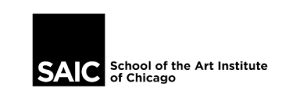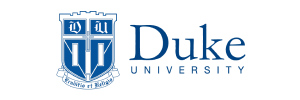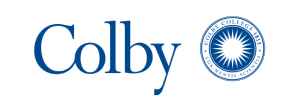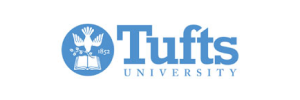
UPPER SCHOOL
College Counseling
Graduates from Ross attend prestigious post-secondary institutions all over the world.
Ross School is dedicated to ensuring students are able to achieve their academic and professional goals. The College Counseling office works closely and intensively with students throughout Grades 9–12 to prepare them for their postsecondary education. The discovery process begins in the spring prior to Grade 9, when counselors partner with students and their parents to outline comprehensive academic plans for students’ high school years.
























Ross School’s College Counseling office provides a comprehensive, bespoke support program and robust resources for all students.
The team guides students through the introspective process of determining interests and educational and career goals, helping them to develop a well-balanced list of prospective colleges and universities and then navigate the admissions process. Representatives from universities and colleges from across the country visit the campus each fall, and college and university admissions workshops are regularly offered to students and parents to support them during this critical period.
View the latest Ross School Profile for current contacts, student enrollment information, curriculum overview and highlights, and additional college acceptances.
Class of 2025 College Matriculation and Scholarships
Three-quarters of the Ross Class of 2025 were accepted to their first or second top-choice colleges and universities, receiving over $4.7 million in merit scholarships! These extraordinary seniors will attend the following schools:
Grade 11: Suggested Timeline
Juniors are enrolled in a Ross Grade Level Programming (GLP) Course that focuses on testing and an introduction to post-secondary planning in the Fall and Winter terms. In the Spring term, this course shifts focus onto College Admissions and Applications.
-
Keep in mind that your grades are a priority. Ask for help when needed.
Choose classes that stretch and challenge you but also meet your interests.
Get involved in extracurricular and leadership activities, volunteer work, and activities that reflect your interests.
Take the PSAT.
-
Continue to put your academics first. Use your time well.
Get to know your college counselors. Make an appointment to speak with them. College counselors will be assigned by February 1.
Begin thinking about how to best spend your summer before senior year. Research and apply to summer programs, Consider internships, work experiences, and volunteer opportunities in which you would be interested.
Prepare for tests. (SAT, ACT, TOEFL). Sign up for APs.
Familiarize yourself with Naviance; try SuperMatch.
Sign up for college information sessions and tours online and in person.
Continue planning courses to fulfill the STEAM, Language, and Art certificates and diplomas if applicable.
Athletes: speak with your coach to see if you are recruitable. If so, talk to a college counselor. Register for NCAA eligibility if appropriate.
-
Schedule a meeting time with your college counselor.
Focus on your coursework and do your best. Keep in mind that GPAs reflect grades 9-11 only.
Schedule Campus Visits and Student Panels either in-person or online. Keep a journal or use a Ross College Counseling Spreadsheet to keep track of your impressions.
Continue building a prospective college list in Naviance. (“Colleges I’m Thinking About” and “Colleges I Am Applying To”)
Art Students: work on creating a portfolio. Look out for free college portfolio review days during which you can get advice on your work.
Continue prepping for SAT/ACT/AP Tests, and be sure to sign up for them. (SAT, ACT, Khan Academy).
Confirm your Summer Activities (academic programs, work, volunteer).
Ask two academic teachers for Letters of Recommendation (LORs). Make sure to have at least one confirmed by the end of the school year. Once a teacher agrees, enter the request on Naviance.
Fill out the General Area on Common Application with your counselor and/or parent.
Put thought into your Senior Project and how it could best represent your interests.
Commit to working hard in class on essay writing so that you can have a solid piece before the summer.
Request official transfer transcripts from any other high schools you have attended. Official transcripts need to have the school’s seal and/or a signature to be accepted by colleges.
Tip: The Net Price Calculator on a school’s website will help you estimate your cost of attending that school.
-
Review FASFA and CSS Profile requirements with your parents for financial aid and merit scholarships. These applications open on October 1.
Find summer internships, commit to volunteer activities, and jobs. Attend Summer Programs.
Continue to visit colleges.
August 1: The Common Application opens. Be sure to update your registration and application.
August 1: University of California Application opens. There are 4 Questions of Inquiry on this application. They do not accept LOR’s or SAT/ACT scores.
Start writing supplemental essays and essay drafts before the start of the school year and share with your counselor.
Continue preliminary Senior Project work.
Request official transfer transcripts from any other high schools you have attended. Official transcripts need to have the school’s seal and/or a signature to be accepted by colleges. Transcripts need to be translated into English.
Do not request teacher’s recommendations on the Common App. They can ONLY be submitted through Naviance. Doing it through the Common App will shut down Ross’s entire system!
If you are planning to take tests in the fall, continue prepping for SAT/ACT.
Find time to relax and have fun!
Grade 12: College Admissions Applications Suggested Timeline
-
Students receive their Ross transcripts with GPAs.
Update your Common App (and Naviance if your accounts are not yet matched) to reflect the list of schools to which you're planning to apply.
Decide on Early Decision and Early Action schools (mostly November 1 and 15).
Have all your standardized testing completed in time for early decision/action deadlines. Check individual schools to see the latest test date they accept.
Request your second teacher recommendation if you haven’t already. Once a teacher agrees, enter the request on Naviance-general request.
October 1: Financial Aid/Scholarship eligibility applications open for Domestic students. (FAFSA/CSS Profile)
October 15: Deadline to hand in Essays for final editing for Early Decision/Early Action Applications.
November 1: Many Early Decision/Early Action Deadlines
November 1: Teacher LOR’s due (Counselors manage this).
November 15: Deadline to hand in Essays for final editing for University of California (UC) Applications.
November 30: UC Application Deadline.
-
Mid-December: Many ED decision notifications are sent. January- EA notifications begin.
December 15: Deadline to hand in Essays for final editing for University of California (UC) Applications.
January 1: Regular Decision Applications are due for many schools. (This will continue through 1/15 and February depending on the school. Some schools have Rolling Admissions)
Art Students: Some Schools will accept portfolios with applications and some after the application is submitted through Slideroom.com. Be sure to check dates!
Senior Project Product Approval/Presentation Approval.
-
February–April: Admissions notifications are released.
May 1: National College Decision Day (this is traditionally the day that HS Seniors must commit to their school of choice.)
Continue to work hard in all of your classes. Colleges can request a status update at any time and will receive a copy of your final transcript. Offers can be revoked.
College Counseling Discussion: Preparing for College.
June 8: Alumni Panel
June 10: Graduation!
College Application Process: Roles and Responsibilities
-
Student Responsibilities
Meet with a college counselor to create a school list.
Research colleges online.
Consistently check Naviance for upcoming college visits.
Counselor Responsibilities
Provide a list of suggested colleges.
Discuss colleges and advise students on fit and whether to apply ED, EA, or Regular.
Give access, information, and support for Naviance.
-
Student Responsibilities
Schedule online/in-person visits
Contact coaches
Arrange travel
Follow-up with thank you note after visit
Counselor Responsibilities
Host college visits on campus.
Notify students of on-campus visits via Naviance.
Offer advice for college visits and interviews.
-
Student Responsibilities
Determine which tests and test dates are appropriate.
Register online before the start of school.
Request SAT/ACT/AP/TOEFL testing agency to submit scores to colleges.
Only families can send scores to colleges; Ross does not have access.
Boarding Students: Plan transportation to tests with the Director of Student Life.
Counselor Responsibilities
Provide test registration assistance if needed.
Advise on tests and test dates.
-
Student Responsibilities
Check to see what essays are required.
Brainstorm essay topics.
Proofread and seek advice from college counselor.
Meet counselor deadlines for draft edits/discussion.
Counselor Responsibilities
Advise on essay topic.
Proofread and edit all essays that are submitted by college counseling’s set deadlines.
-
Student Responsibilities
Keep track of submission deadlines.
Proofread applications.
Update status on Naviance.
Submit application fee.
Submit applications on time.
Counselor Responsibilities
Track submissions
Proofread and edit activities list, supplements, and senior project work.
-
Student Responsibilities
Inform College Counseling Office of application submissions.
Provide supporting materials (art portfolio, music, etc.) if necessary.
Complete Teacher Recommendation on Naviance.
Counselor Responsibilities
Track and submit recommendations, transcripts, and school profile.
Ensure application is an honest, organic reflection of students.
Submit counselor recommendation.
Submit transcripts.
Update colleges with grades.
-
Student Responsibilities
Fill out and submit financial aid forms (FAFSA and CSS).
Use net price calculator
Counselor Responsibilities
Introduce families to net price calculators.
Help Families with financial aid forms
Please note: The information provided is based on deadlines for US Schools only. International application deadlines may be different.








